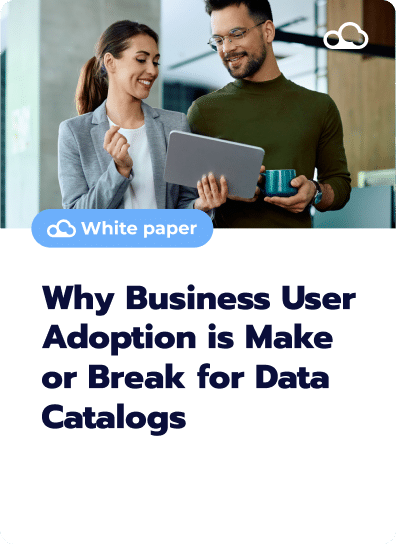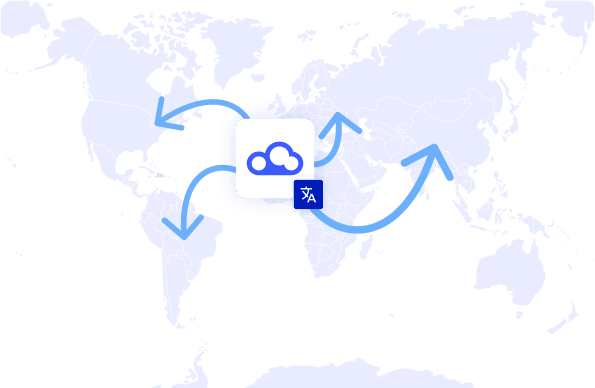Cloud data platforms, analytics tools, and machine learning models have all proven to be invaluable for deriving insights from data. However, one barrier continues to limit their ROI: Language - Not the programming kind, but the human kind.
Despite years of digital transformation, many organizations still struggle to make analytics accessible and actionable across their workforce. Natural language processing (NLP) bridges technical data structures and business users across all levels, roles, and regions.
Studies show that embedding natural language interfaces within analytics environments can radically improve data discoverability, literacy, and governance. More importantly, it creates a universal data language.
Let’s explore how this shift empowers users and strengthens the governance frameworks that keep our data ecosystems secure, compliant, and scalable.
From complex queries to conversational data access
Historically, extracting value from enterprise data meant knowing SQL, navigating BI dashboards, or collaborating with specialized teams. This dependency created friction, delayed decision-making, and perpetuated data silos.
With natural language processing in analytics, users can now interact with datasets conversationally. Instead of writing complex queries or filtering through reports, users can ask: “Show me monthly churn rates by region for the last 12 months.”
The system interprets the request, maps it to the underlying semantic layer, and returns a governed and consistent response. Whether the user is a product manager, financial controller, or executive stakeholder, NLP abstracts technical complexity and promotes data democratization.
Faster insights without waiting on data teams
Lower barriers to entry, expanding access to data
Contextual decision-making grounded in real-time analytics
A common data language across geographies
One of the most powerful aspects of natural language is its ability to normalize language across diverse teams. In a global enterprise, teams in Tokyo, New York, and Berlin might work with the same data but approach it with different linguistic and technical frameworks.
By integrating multilingual NLP and aligning with governed business glossaries, organizations can ensure:
Consistent definitions of KPIs and metrics
Localization without sacrificing standardization
Role-specific vocabularies that map to the same data models
In essence, NLP becomes the foundation of a shared data language - Aligning business users and technical teams, regardless of geography or seniority.
This directly supports data governance efforts by enforcing uniform terminology, minimizing the risk of misinterpretation.
Natural language processing in data governance platforms
For today’s CDOs and data leaders, integrating NLP into the modern data stack isn’t just a UX enhancement - It’s a strategic move.
Here’s how NLP reinforces key pillars of enterprise data strategy:
- NLP interfaces rely on well-maintained semantic layers and data catalogs
- Natural language queries surface governed definitions, not shadow metrics
- Improved observability over how data is accessed and queried
- Users learn by doing: Formulating natural questions and receiving accurate, governed answers
- Low-code/no-code analytics reduces reliance on specialized training
- Facilitates internal data training programs by aligning with intuitive tools
Data that speaks your language
Multilingual AI: Breaking language barriers for effortless data collaboration
DataGalaxy’s commitment to making data knowledge accessible drives our innovation. By integrating advanced translation and multilingual search capabilities into our Data Knowledge Catalog, we’re breaking down barriers in data understanding and use, fostering a truly global, data-driven culture.
- NLP queries are filtered through row-level security and role-based access controls
- Sensitive data remains protected while authorized users gain the freedom to explore
- Audit logs track usage and ensure compliance with data privacy regulations (GDPR, CCPA, etc.)
- Reduces dependence on backlog-heavy data teams
- Accelerates root cause analysis, forecasting, and ad hoc exploration
- Drives data operationalization by embedding insights into daily workflows
Natural language to enable every data role
The appeal of NLP in analytics lies in its versatility across personas:
Data analysts
Spend less time on repetitive dashboard requests and more time on advanced modeling and analysis.
Data Stewards
Gain better visibility into how terms and datasets are being used, aiding data catalog management.
Business users
Ask natural questions and self-serve data exploration, increasing trust and autonomy.
Executives & CDOs
Quickly surface insights, ensure strategic alignment, and drive data-first cultures.
By leveling the analytics playing field, natural language processing helps organizations shift from centralized, reactive models to decentralized, proactive ones where every user is a confident contributor to the data value chain.
DataGalaxy’s Multilingual AI data governance platform
Imagine this: Analytics in Spain, marketing in Paris, and sales in New York, all striving toward the same goals. But the data? It’s scattered across tools, written in different languages, and confusing for both teams and AI systems. The result? Miscommunication, inefficiencies, and delays.
DataGalaxy’s AI-driven multilingual data catalog is built to solve this. It’s not just a translation tool - It's a unified platform connecting people, AI systems, and data models. Harmonizing metadata and eliminating language barriers transforms how teams collaborate and how machines process information, making data a universal resource.
DataGalaxy’s commitment to making data knowledge accessible drives our innovation. By integrating advanced translation and multilingual search capabilities into our Data Knowledge Catalog, we’re breaking down barriers in data understanding and use, fostering a truly global, data-driven culture.
DataGalaxy enables global teams to access data content in various languages, making sure everyone can fully interact with the data regardless of their native language.
Speak the language of your data
We often talk about making organizations more “data-driven.” But the real challenge isn’t just about collecting more data—it’s about understanding it, trusting it, and using it confidently.
By embedding natural language processing into enterprise analytics, we open the doors to more inclusive, agile, and governed data environments. We allow people to interact with data in the way they naturally think, ask, and decide - Whether they're writing code in Python or asking a question in Spanish.
In the end, language is more than communication - It’s connection. With natural language as the new interface for analytics, we can finally connect our people, our data, and our decisions.
Fueling smarter decisions for
200+ industry powerhouses.










